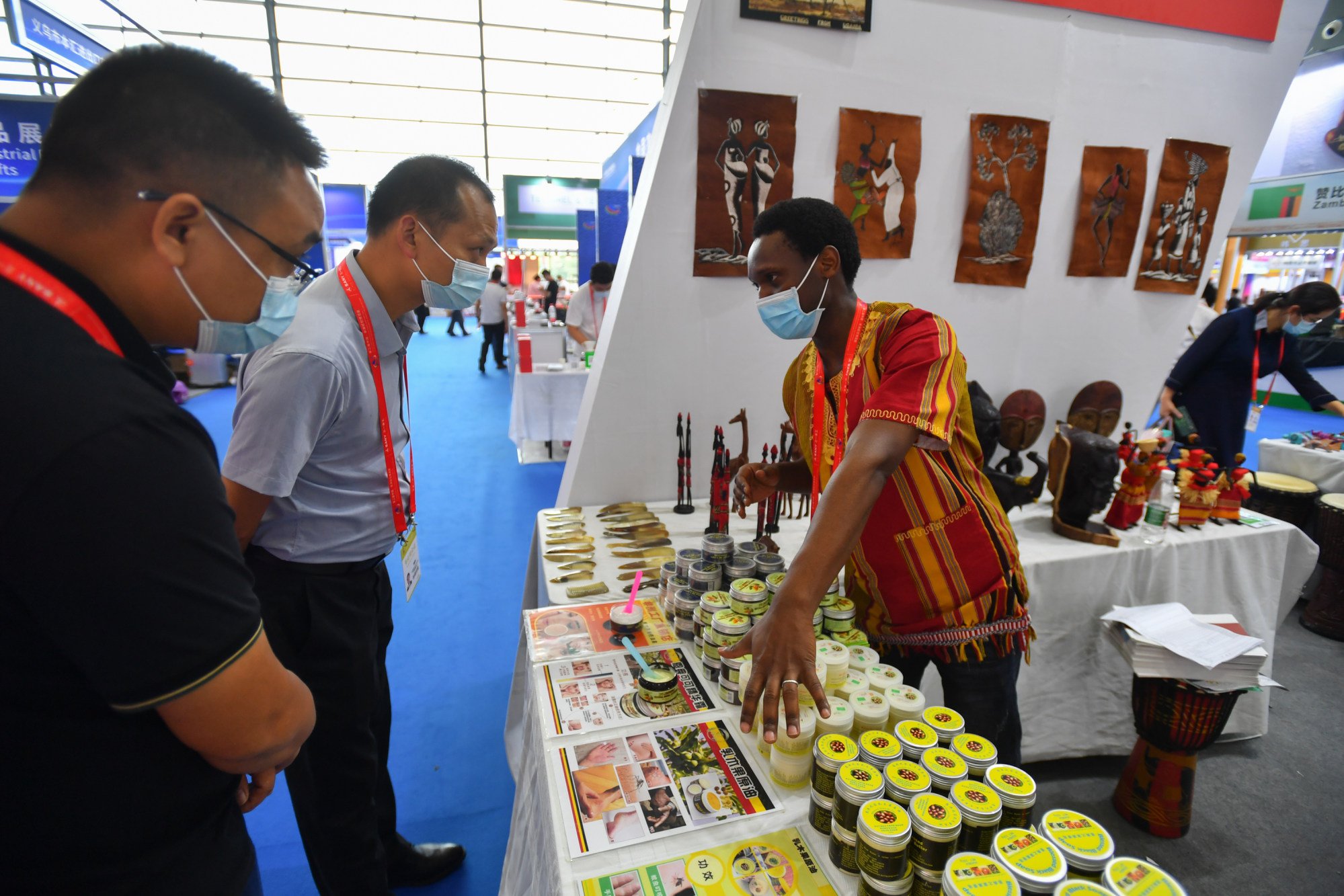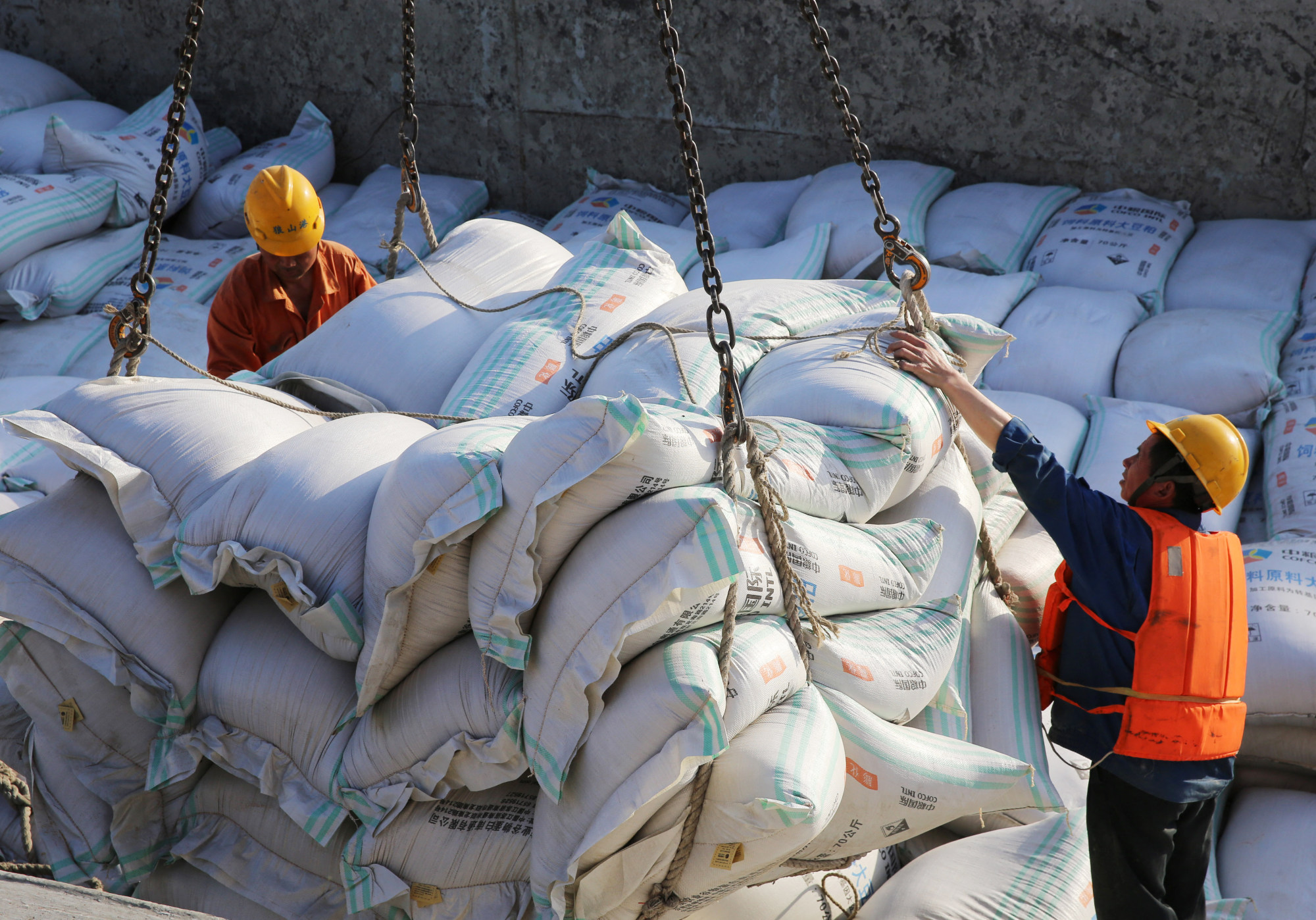
China-Africa trade: Zambian soybean meal follows Kenyan avocado into Chinese market
- Zambia becomes latest African nation to win approval for agricultural exports as China seeks to rebalance trade with the continent
- China is now the No 2 destination for African agricultural exports, according to foreign ministry in Beijing
China has approved imports of Zambian soybean meal, as the world’s top pork-consuming nation looks to diversify its sources of pig feed.
Shipments must meet inspection and quarantine requirements to ensure they do not carry “pests of concern” to China, Chinese customs said on Monday.
They must also be sourced from processing enterprises recommended by the Zambian agriculture ministry and approved by Chinese inspectors, the General Administration of Customs said in its statement.
The move, which took effect on August 19, follows the signing of two protocols last month on the export of Zambian soybean meal and stevia leaves to China.

Other exporters of soybean meal to China include Denmark, Russia, India, Brazil and the United States.
The US is also among China’s main sources of soybean, along with Brazil, Russia and Argentina.
China is the world’s top importer of the legume, which is used to produce edible oil as well as soy milk, tofu and tofu skin, all important components of the Chinese diet.
It is also the world’s top consumer of pork, and soybean meal is a key source of protein in pig feed.
China ready to tap pork reserves as inflation risks mount
Others such as Ethiopia, Namibia, Botswana, Zimbabwe, Rwanda and South Africa are now exporting products ranging from roses, coffee, beef and by-products and fruit to the Chinese market.

Zambia follows Tanzania, which started exporting soybean to China last year after receiving approval in 2020.
China’s only other African soybean supplier is Ethiopia, but it accounts for just a fraction of total imports.
According to Chen Mingjian, the Chinese ambassador to Tanzania, imports of African soybean posted a fivefold annual increase last year. “China’s market is very big, we welcome more Tanzanian soybeans,” Chen tweeted on August 1.

China is now the second-largest destination for African agricultural exports, the country’s foreign ministry said last week.
According to the ministry, China has granted market access to 25 kinds of food and agricultural products from 14 African countries – including Kenya, South Africa, Benin and Egypt – since the 2018 FOCAC.
During the FOCAC in November, Xi also promised that Beijing would open “green lanes” for African agricultural exports, and provide US$10 billion in trade finance to support such exports to China.
Starting September 1, China will also offer zero-tariff treatment on 98 per cent of taxable items originating from 16 of the world’s least-developed countries. Most of these are on the African continent, including Eritrea, Djibouti and Rwanda.
The policy will gradually be expanded to all least-developed countries. This is expected to increase imports from Africa, with Togo, Guinea, Mozambique, Sudan, Chad and the Central African Republic among nations likely to benefit.
More Malawian agricultural produce will also enjoy zero-tariff entry to the Chinese market, under an agreement signed last week.
Kenyan avocados in Chinese shops mark new era in Africa-China food trade
Yike Fu, a policy analyst at the Beijing-based Development Reimagined, which advises African traders on how to access the Chinese market, said the new tariff lines are good news but “the preferences should be available to all African countries”.
“There is still considerable confusion among African stakeholders about the meaning and implementation of green lanes. We are hoping this will be addressed very soon by the customs authorities.”
Zhou Yuyuan, a senior research fellow with the Centre for West Asian and African Studies at the Shanghai Institutes for International Studies, said the various Chinese initiatives will provide better conditions for both agricultural products and non-resource commodities from Africa.
“The policy side such as the zero-tariff [initiative] will certainly stimulate the expansion of trade,” Zhou said.

